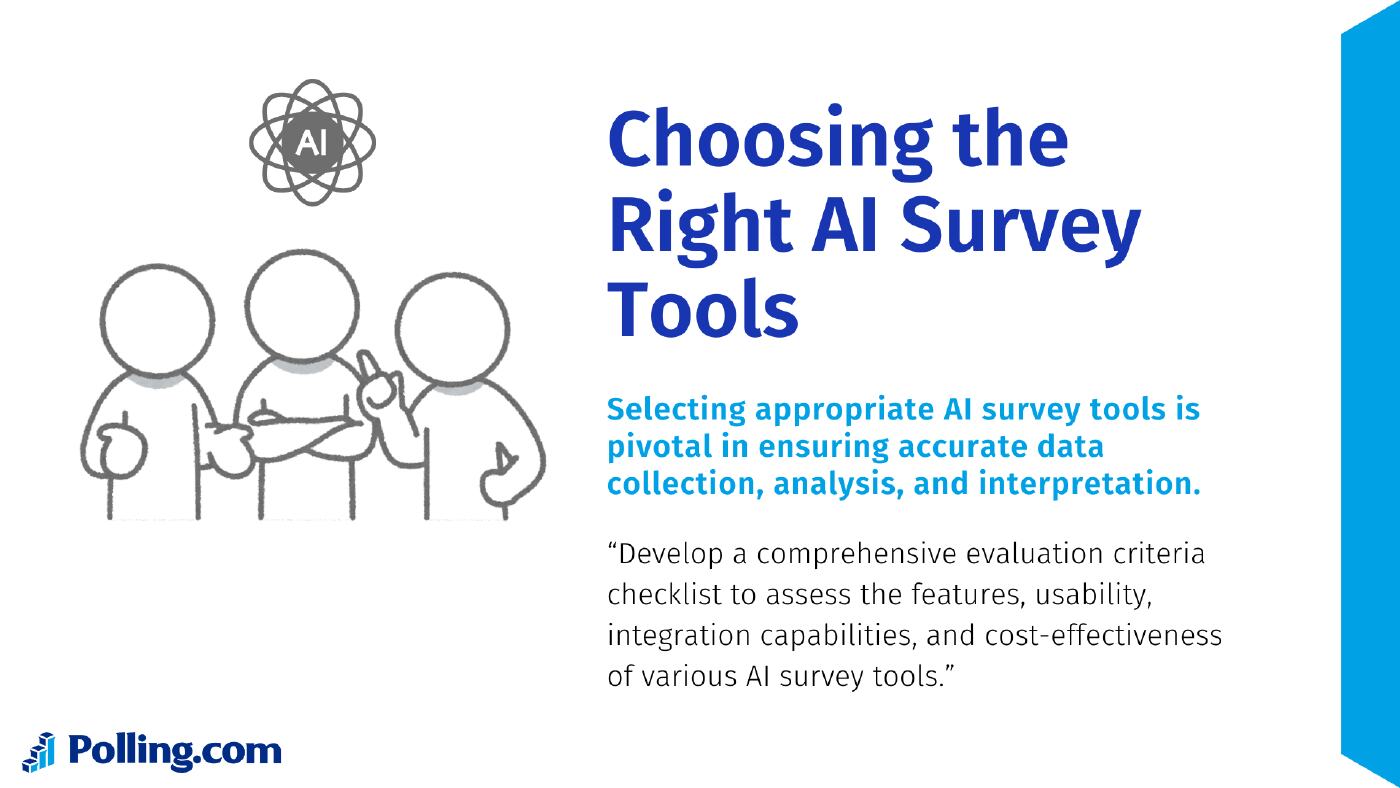
Artificial Intelligence and Machine Learning for the Next-Generation Surveys
Surveys play an indispensable role in data-driven decision-making across industries, providing crucial insights into customer behavior, market trends, and employee satisfaction. The integration of Artificial Intelligence (AI) and Machine Learning (ML) has ushered in a new era for survey tools, significantly enhancing their efficiency, accuracy, and depth of analysis.
This article explores the transformative impact of AI and ML on survey methodologies, highlighting key components, real-world applications, and the future direction of AI-powered surveys.
The Evolution of Survey Tools
Historically, survey creation and analysis were labor-intensive processes, often limited by the scale of data collection and the manual effort required for analysis, especially with open-ended questions. The advent of AI and ML technologies has revolutionized these processes, enabling automated, scalable, and sophisticated analysis of large datasets, thus opening new vistas for insightful data gathering.
Benefits of AI and Machine Learning in Surveys
Integrating AI and ML into survey tools offers numerous benefits:
- Enhanced Data Quality: By minimizing human errors and biases, AI and ML ensure the collection of high-quality, reliable data.
- Efficiency in Data Collection and Analysis: AI technologies automate the data collection process, handling vast datasets efficiently and extracting meaningful insights swiftly.
- Personalization: Dynamic questionnaires, tailored by AI based on respondents’ previous answers, significantly improve engagement and data richness.
Key Components of AI-Powered Survey Tools
AI Survey Generators
AI survey generators leverage natural language processing (NLP) and machine learning algorithms to create intelligent, dynamic surveys that can adapt in real-time based on respondents’ answers. This ensures that the surveys remain relevant and engaging, improving response rates and the quality of insights gathered.
AI for Survey Analysis
At the heart of AI-powered survey tools is the capability to analyze vast amounts of data rapidly. Using NLP and AI, these tools can interpret open-ended responses, detect sentiments, and identify patterns or trends within the data, turning raw responses into actionable insights.
AI Survey Builders
These tools provide a user-friendly interface for designing and deploying surveys, integrating AI to suggest question types, phrasing, and structure based on the survey’s objectives. They automate the layout design and optimize it for different platforms, ensuring a wide reach and easy accessibility.
Poll AI
Poll AI refers to the application of artificial intelligence in creating and analyzing quick polls. It uses AI algorithms to analyze poll responses in real-time, providing instant insights and enabling decision-makers to react swiftly to public opinion or employee feedback.
AI Analytics
AI analytics in surveys encompass the use of advanced data analytics techniques powered by AI to dissect survey data, reveal hidden patterns, predict trends, and offer deep insights that guide strategic decisions. These analytics tools are capable of handling both quantitative and qualitative data, offering a comprehensive analysis perspective.
Real-World Applications and Impacts
AI and ML are making significant impacts across various sectors through enhanced survey analysis. In healthcare, for instance, conversational analytics powered by AI offers actionable insights from patient feedback, improving care delivery and patient satisfaction.
Similarly, in market research, AI-powered surveys enable companies to understand consumer behavior in-depth, leading to better product development and targeted marketing strategies.
Choosing the Right AI Survey Tools

Selecting the appropriate AI-powered survey tools involves evaluating their capabilities in dynamic question generation, in-depth analysis, user-friendly survey building, and comprehensive analytics. The ideal tool should balance automation with the depth of insight, offering features like sentiment analysis, predictive analytics, and data visualization to convert survey data into strategic business intelligence.
Moreover, it’s essential to consider how seamlessly these features integrate into existing workflows to ensure smooth implementation and utilization. This integration aspect can significantly impact the efficiency and effectiveness of utilizing AI-powered survey tools within an organization’s operations.
When assessing survey tools, organizations should prioritize user experience and ease of use. A user-friendly interface and intuitive design can enhance adoption rates and encourage active participation from survey respondents, ultimately leading to more reliable and representative data.
Furthermore, comprehensive analytics capabilities are crucial for extracting meaningful insights from survey data. Tools that provide advanced analytics features, such as segmentation, trend analysis, and correlation detection, empower organizations to uncover hidden patterns and make data-driven decisions with confidence.
In summary, the selection process for AI-powered survey tools requires careful consideration of various factors, including functionality, integration capabilities, user experience, and analytics features. By prioritizing these aspects, organizations can choose tools that best align with their needs and goals, ultimately maximizing the value derived from survey data.
Challenges and Considerations
While the benefits are substantial, adopting AI in surveys presents challenges such as ensuring data privacy, securing responses, and addressing AI biases. It’s crucial to select tools that prioritize ethical AI use and data protection to maintain trust and compliance.
The Future of Surveys with AI and Machine Learning
The future of surveys lies in the continuous evolution of AI and ML technologies, promising even more sophisticated tools for data analysis and decision-making.
As these technologies advance, they will further personalize survey experiences, enhance predictive analytics, and expand the scope of actionable insights available to businesses and researchers.
Conclusion
AI and machine learning have transformed surveys into powerful tools for generating deep insights. By leveraging AI, organizations can unlock new levels of understanding, enabling informed decisions and strategic actions.
Furthermore, as we look forward, the potential of AI-powered surveys continues to grow, promising an exciting future for data-driven decision-making across all sectors.
